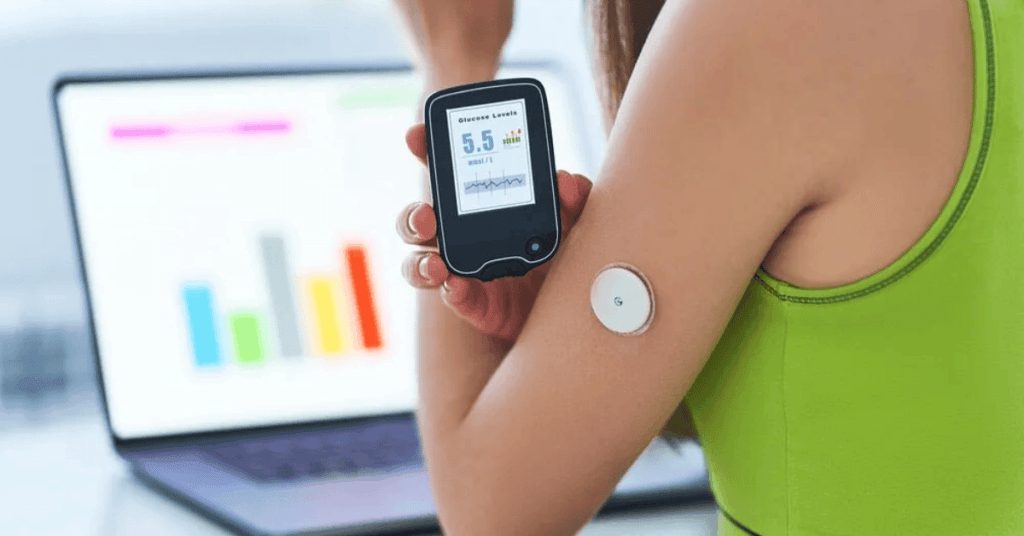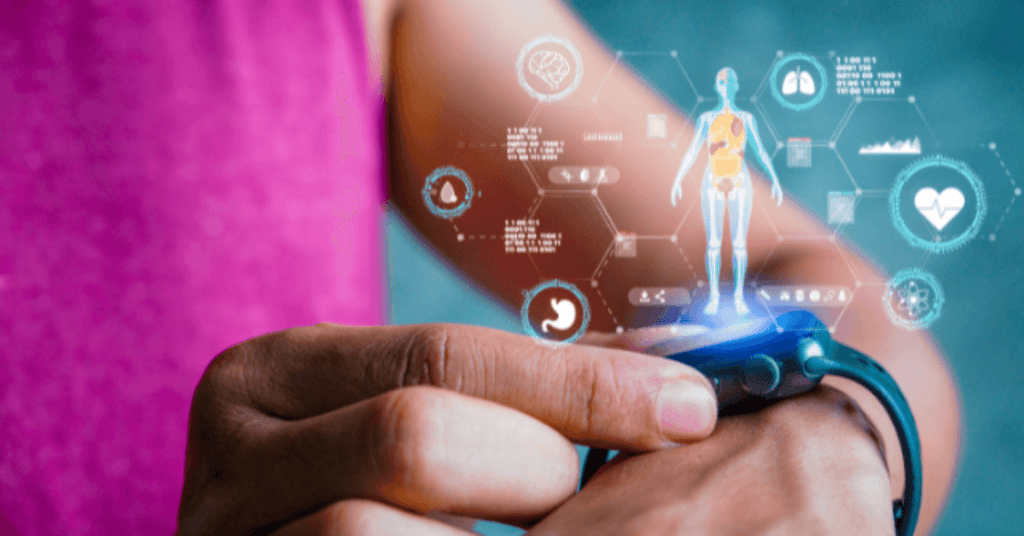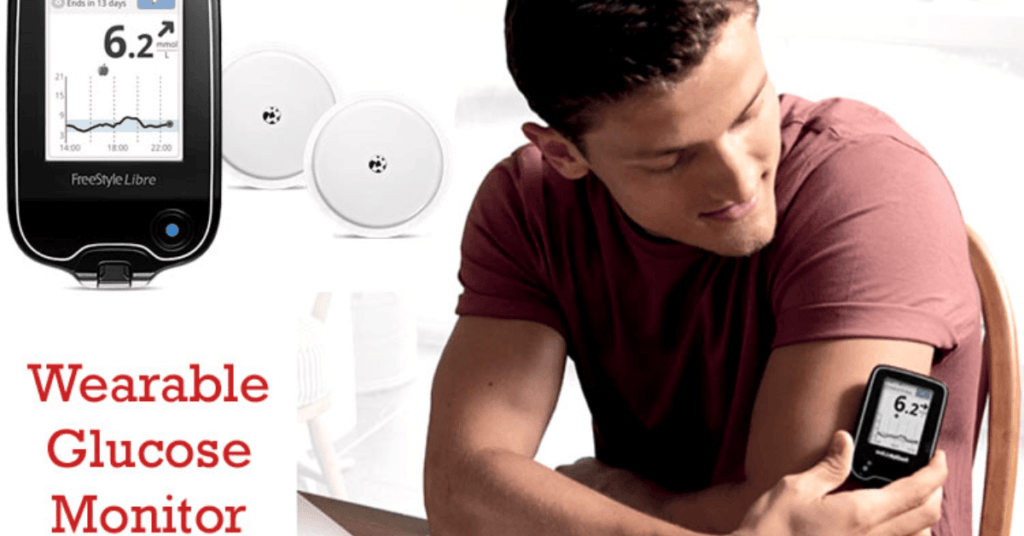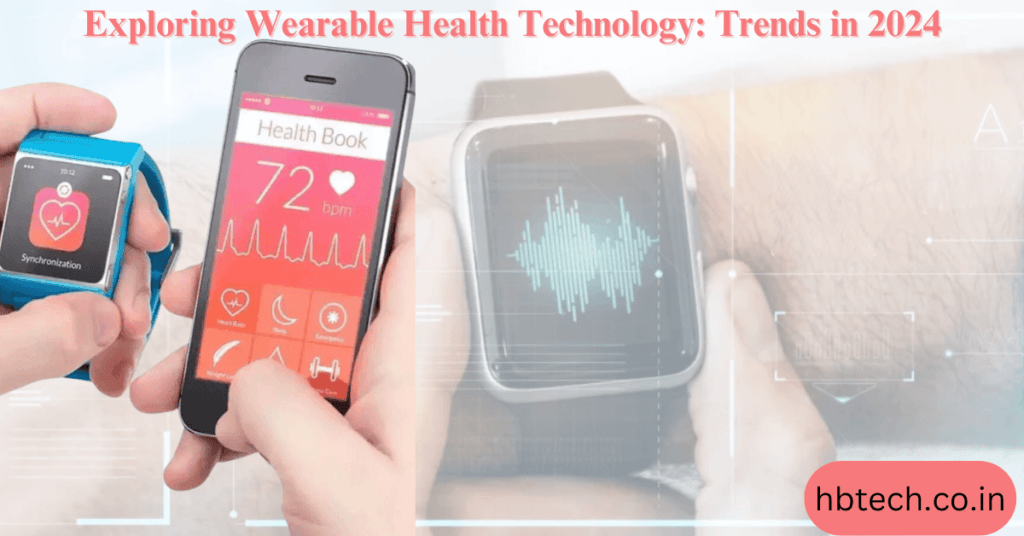Wearable in Heathcare
Wearable health technology is transforming how we manage our health by bringing real-time data, advanced tracking. and personalized care into our daily lives. From monitoring chronic conditions to improving fitness and mental well-being , these devices are becoming indispensable. Let’s explore nine key trends shaping this exciting field in 2024.

Remote Patient Monitoring
Wearables are bridging the gap between patients and healthcare providers. They enable doctors to track vital signs like heart rate, blood pressure, and oxygen levels remotely. This technology is especially valuable for patients managing long -term health issues, allowing for timely interventions and better outcomes.

AI-Powered Wearables
Artificial intelligence is making wearables smarter. Devices can now analyze data to provide personalized insights, from workout adjustments to early warnings for potential health issues. AI–driven fitness trackers and smartwatches are helping users make informed decisions about their health.

Continuous Glucose Monitoring
For people with diabetes, wearable tech is offering a game-changer. Continuous glucose monitors now provide real-time blood sugar readings without the need for painful pricks. This innovation is helping users maintain consistent control over their blood sugar levels with minimal hassle.

Mental Health Tracking
Wearable devices are stepping into the realm of mental well-being. Features like stress level tracking, mood detection. and guided relaxation exercises are helping users understand and improve their emotional health. This holistic approach integrates physical and mental health monitoring.
Smart Fitness Clothing
Fitness tracking is no longer limited to wristbands. Smart clothing equipped with sensors can now monitor posture, muscle activity, and movement , giving athletes and fitness enthusiasts detailed performance feedback. These innovations are making fitness tracking more versatile and accurate.
Non-invasive Health Sensors
Wearables now include sensors capable of measuring important health metrics like blood oxygen, hydration levels. and respiratory rates without invasive procedures. This development improves user comfort while expanding what these devices can track.
Personalized Healthcare
Wearables are transforming personal health management by tailoring recommendations for diet , exercise, and even medication schedules based on individual needs. This customization ensures that users receive support aligned with their specific health goals.
Sustainable Wearable Tech
The industry is becoming more eco-conscious , with devices incorporating biodegradable materials and energy-efficient designs. Some wearables even use solar power, ensuring they align with the global push for sustainability.
Interoperable Health Ecosystems
Wearable tech is becoming more connected than ever. Devices now integrate seamlessly with electronic health records and telemedicine platforms, allowing users and healthcare providers to share data effortlessly. This connectivity leads to more coordinated and efficient healthcare.
Future of Wearable Health Technology
Wearables are making healthcare more accessible, personalized. and sustainable. As these devices continue to evolve, they promise to play a vital role in improving quality of life for millions. Whether you’re tracking fitness, managing a condition , or simply staying proactive about your health, wearable technology is reshaping how we approach well-being.
Frequently Asked Questions(FAQs)
What are wearable health devices, and how do they work?
Wearable health devices are gadgets equipped with sensors that monitor health metrics like heart rate, blood pressure, and activity levels. They collect real-time data, analyze it using software (often powered by AI), and provide insights or alerts to users and healthcare providers.
Can wearables track mental health?
Yes, many wearables now come with mental health features, such as stress level monitoring, mood detection, and guided mindfulness exercises. These features aim to help users manage emotional well-being alongside physical health.
How is AI used in wearable health technology?
AI in wearables analyzes user data to deliver personalized recommendations, predict health issues, and optimize fitness plans. For example, it can identify patterns in sleep or activity and suggest improvements.
How do wearables provide personalized healthcare solutions?
Wearables use collected data to offer tailored advice on exercise, diet, and medication schedules. This personalization helps users achieve specific health goals effectively.









